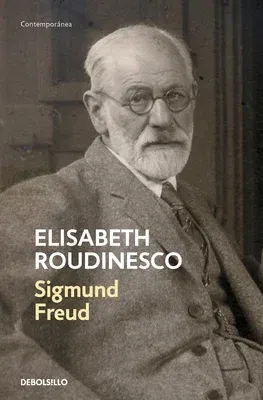La biografía definitiva de un personaje clave del siglo XX que
revolucionó la idea del ser humano.
Tras décadas de hagiografías y de condenas encendidas, resulta muy
complicado saber hoy en día quién fue Sigmund Freud. Sin embargo,
después de la publicación de las últimas biografías de referencia se han
abierto nuevos archivos a los investigadores y lo fundamental de la
correspondencia ya es accesible. Por tanto, este es un momento
inmejorable para volver a un hombre y una obra sobre la que quedaba
mucho que decir. El fundador del psicoanálisis era, para empezar, un
vienés de la Belle Epoque, súbdito del Imperio austrohúngaro, heredero
de la Ilustración alemana y judía. En cuanto al psicoanálisis en sí, es
fruto de un esfuerzo colectivo, de un cenáculo en el cual Freud dio vía
libre a su fascinación por lo irracional y las ciencias ocultas,
convirtiendo a veces a sus amigos en enemigos, ejerciendo de Fausto pero
también de Mefistófeles. Pensador moderno, pero conservador en política,
nunca dejó de actuar de modo contradictorio con su obra, siempre en
nombre de la Razón y de las Luces.
Aquí está Freud en su tiempo, en su familia, rodeado de sus colecciones,
con sus mujeres, sus hijos, sus perros; enfrentado al pesimismo ante el
auge de los extremismos, lleno de dudas a la hora de emprender su exilio
londinense, donde morirá. Pero también le veremos en el nuestro,
alimentando nuestras preguntas con sus propias dudas, sus fracasos y sus
pasiones. Ganadora de los premios literarios franceses Prix Decèmbre y
Prix de Prix y traducida a 25 idiomas.
ENGLISH DESCRIPTION
Élisabeth Roudinesco offers a bold and modern reinterpretation of the
iconic founder of psychoanalysis. Based on new archival sources, this is
Freud's biography for the twenty-first century―a critical appraisal, at
once sympathetic and impartial, of a genius greatly admired and yet
greatly misunderstood in his own time and in ours.
Roudinesco traces Freud's life from his upbringing as the eldest of
eight siblings in a prosperous Jewish-Austrian household to his final
days in London, a refugee of the Nazis' annexation of his homeland. She
recreates the milieu of fin de siècle Vienna in the waning days of the
Habsburg Empire―an era of extraordinary artistic innovation, given
luster by such luminaries as Gustav Klimt, Stefan Zweig, and Gustav
Mahler. In the midst of it all, at the modest residence of Berggasse 19,
Freud pursued his clinical investigation of nervous disorders, blazing a
path into the unplumbed recesses of human consciousness and desire.
Yet this revolutionary who was overthrowing cherished notions of human
rationality and sexuality was, in his politics and personal habits, in
many ways conservative, Roudinesco shows. In his chauvinistic attitudes
toward women, and in his stubborn refusal to acknowledge the growing
threat of Hitler until it was nearly too late, even the analytically
minded Freud had his blind spots. Alert to his intellectual
complexity―the numerous tensions in his character and thought that
remained unresolved―Roudinesco ultimately views Freud less as a
scientific thinker than as the master interpreter of civilization and
culture.

